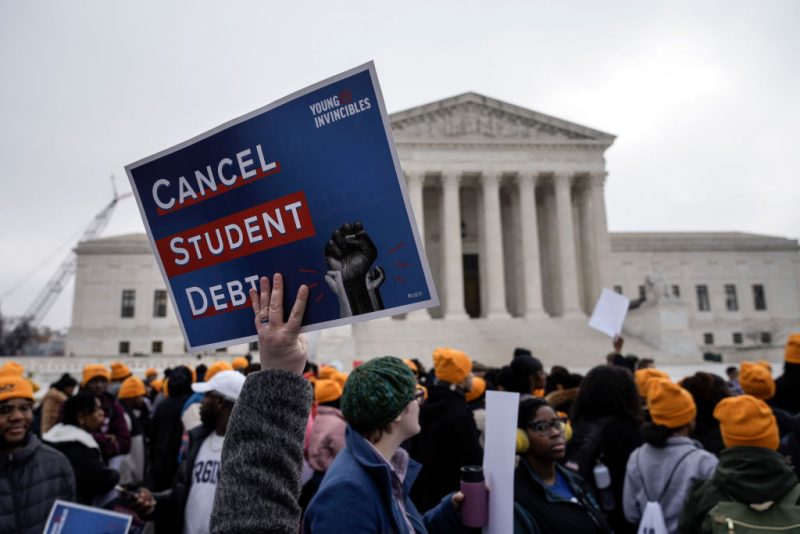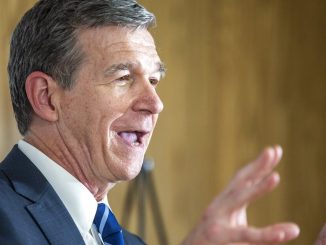

OAN Deven Berryhill
UPDATED 5:30 PM PT – Tuesday, February 28, 2023
On Tuesday, the U.S. Supreme Court heard arguments regarding the legality of President Joe Biden’s plan to cancel student loan debts due the COVID-19 Pandemic.
Back in August, U.S. Secretary of Education Miguel Cardona had attempted to cancel the loan debts of 40 million students but was halted by multiple lawsuits. Tuesday’s SCOTUS proceedings were a result of lawsuits filed back in December 2022 by four Republican states and two individual student loan recipients.
The issue at hand started after President Biden announced that $20,000 of student loan debt would be forgiven to every student who received Pell Grants and $10,000 for borrowers who did not. The president’s plan was stalled in November after a federal judge ruled that the plan was an “unconstitutional exercise of Congress’s legislative power.”
In order to justify the debt relief program, the Biden administration attempted to evoke the Higher Education Relief Opportunities for Students (HEROES) Act. Many Republicans criticized this move by the president as a way of passing the debt relief package without Congressional approval. The “Hero’s Act” was intended to help students with their loans during times of war and was first invoked by congress in the aftermath of 9/11.
Some Republicans have criticized the president for using the debt forgiveness plan as a pollical ploy to get more votes for Democrats leading up to the midterm elections.
“This brazen and unconstitutional ‘forgiveness’ decree will be challenged and will lose in court, but the truth is that it may not matter to Biden. The move was meant to buy votes, not reform lending or solve a problem. In that sense, the cost is but an annoying detail,” said former U.S. Secretary of Education Betsy Devos.
Senator Ted Budd (R-N.C.) said in a tweet that, “The Biden student loan cancellation plan is a wealth transfer, from the vast majority of taxpayers who don’t have a college degree, to wealthy elites who don’t need this sort of bailout.”
During Tuesday’s arguments, the U.S. Solicitor General Elizabeth Prelogar said “in this case, the secretary of education made the necessary findings to justify the loan forgiveness. Without relief for debtors, there will be a wave of default across the country with all of the negative consequences that has for borrowers.” She went on to argue that the Biden plan “is precisely the type of context where the executive should be able to implement those emergency powers.”
Justice Brett Kavanaugh responded to Prelogar saying that “some of the biggest mistakes in the court’s history were deferring to assertions of executive or emergency power,” and, “some of the finest moments in the court’s history were pushing back against presidential assertions of emergency power.”
Conservative Justices Neil Gorsuch, Amy Coney Barrett and Clarence Thomas reminded prosecutors that the debt provision to “waive and modify the terms” was not the same as completely erasing the student loans.
According to sources, the Supreme Court will not announce its decision until late June or early July.





Be the first to comment